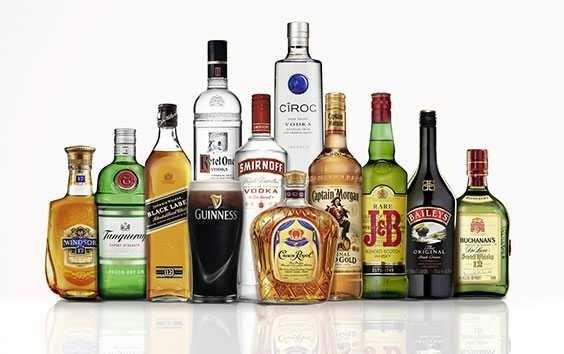In our last conversation, we introduced DRINKiQ and talked about reasons and influences on our decisions to drink. The concept of responsible drinking and Diageo's global responsible drinking objective. Today, we'll switch gears and talk about the substance itself: First, what is alcohol? Classes of alcohol and how it's made. Next, it's role throughout history and in contemporary society.
What is alcohol?
Alcohol is any drink containing ethanol.
Ethanol, also called alcohol, ethyl alcohol, grain alcohol, and drinking alcohol, is a chemical compound, a simple alcohol with the chemical formula C2 H5 OH. Its formula can be also written as CH3−CH2−OH or C2 H5−OH (an ethyl group linked to a hydroxyl group), and is often abbreviated as EtOH. Ethanol is a volatile, flammable, colorless liquid with a slight characteristic odor. It is a psychoactive substance and is the principal type of alcohol found in alcoholic drinks .
(Wikipedia)
How is alcohol made?
Alcohol is made by fermenting a natural source of sugar with a catalyst, which is usually yeast. As it ferments, the carbohydrates (starch and sugars) in the main source turn into carbon dioxide and ethyl alcohol, which is the basis for all alcohol drinks.
Many brands keep the exact recipe for their drinks a secret, known only to their distillers, brewers and vintners. However, every type of alcohol drink follows this basic process.
Beer
Beer is made with grains such as barley and wheat, and often flavoured with hops. When the grains and sugars have been malted and brewed for a certain time, additional grains and other ingredients are added for colour, flavour and/or clarity.
Did you know?
If you distill beer you create whisky (or whiskey) -- because they're made from the same ingredients. If you remove some of the water from beer by heating it until it becomes a gas and then cooling it until it is a liquid again, the concentrated alcohol that remains is whisk(e)y.
Wine
Wine is usually made from grapes, but other fruit or vegetables can be used. As the sugars in the fruit or vegetables ferment, the resulting liquid is wine.
Spirits
Distilled spirits can be made from the widest variety of ingredients. These includes grains for whisk(e)y, sugarcane syrup and molasses for rum, and lots of different fruits and vegetables for vodka and gin.
Alcohol throughout history and contemporary society
So, we know in general terms how it's made and we all know that alcohol has been around for awhile.
Purposeful production of alcoholic drinks is common and often reflects cultural and religious peculiarities as much as geographical and sociological conditions.
Discovery of late Stone Age jugs suggest that intentionally fermented beverages existed at least as early as the Neolithic period, around 10,000 BC, when agriculture became prominent in human culture.
Evidence of viticulture, the selective cultivation of grape vines for making wine dates from 6,000-4,000 BC. Clay tables with recipes for beer have been found dating from 3,200 BC.
From the earliest times, alcohol has played an important role in many religious ceremonies and worship. Historically, alcohol was widely used for it's medicinal properties, as an antiseptic and as a way to reduce pain.
In Nigeria, during the traditional era, alcohol played complex roles in the socio-cultural relationships of different communities. It was mainly consumed by male adults for pleasure while females and youths were culturally restrained from drinking. Excess consumption was not a norm and intoxication attracted negative sanctions. In the contemporary Nigerian society, patterns of consumption are changing rapidly following the socio-political and economic development of Nigeria, giving rise to new norms of alcohol use.
For more information visit DRINKiQ.com
Watch out for the next series on Responsible enjoyment of alcohol
Don't forget your comments will make it the actual conversation it's designed to be. Also, kindly upvote and re-steem.
Thanks




Hello! I find your post valuable for the wafrica community! Thanks for the great post! We encourage and support quality contents and projects from the West African region.
Do you have a suggestion, concern or want to appear as a guest author on WAfrica, join our discord server and discuss with a member of our curation team.
Don't forget to join us every Sunday by 20:30GMT for our Sunday WAFRO party on our discord channel. Thank you.
Congratulations your post has been featured on the Stach Post Review Article.
Thanks for using the Stach Tag.
Keep Being Creative!.
Courtesy-Stach Curation team